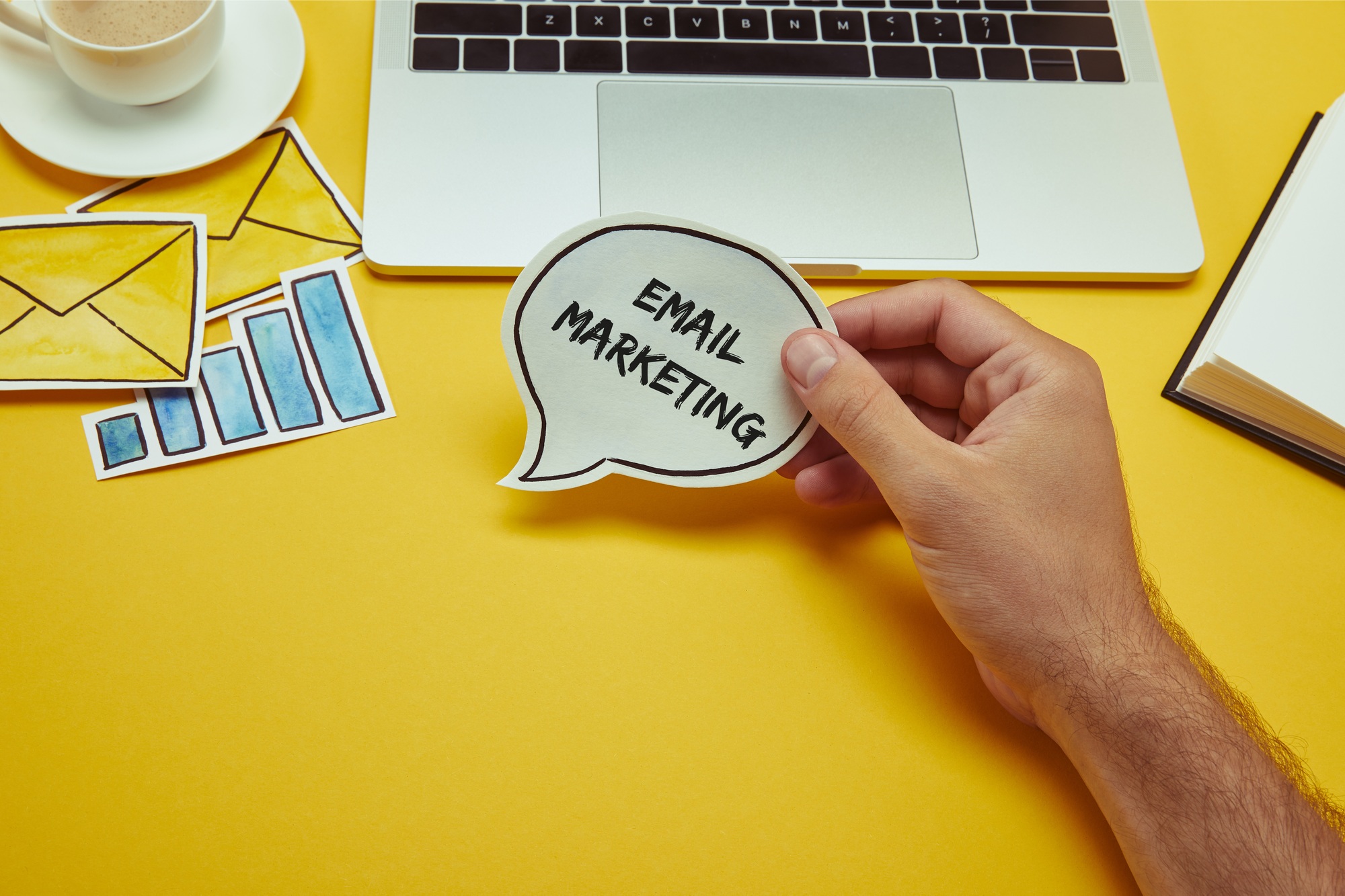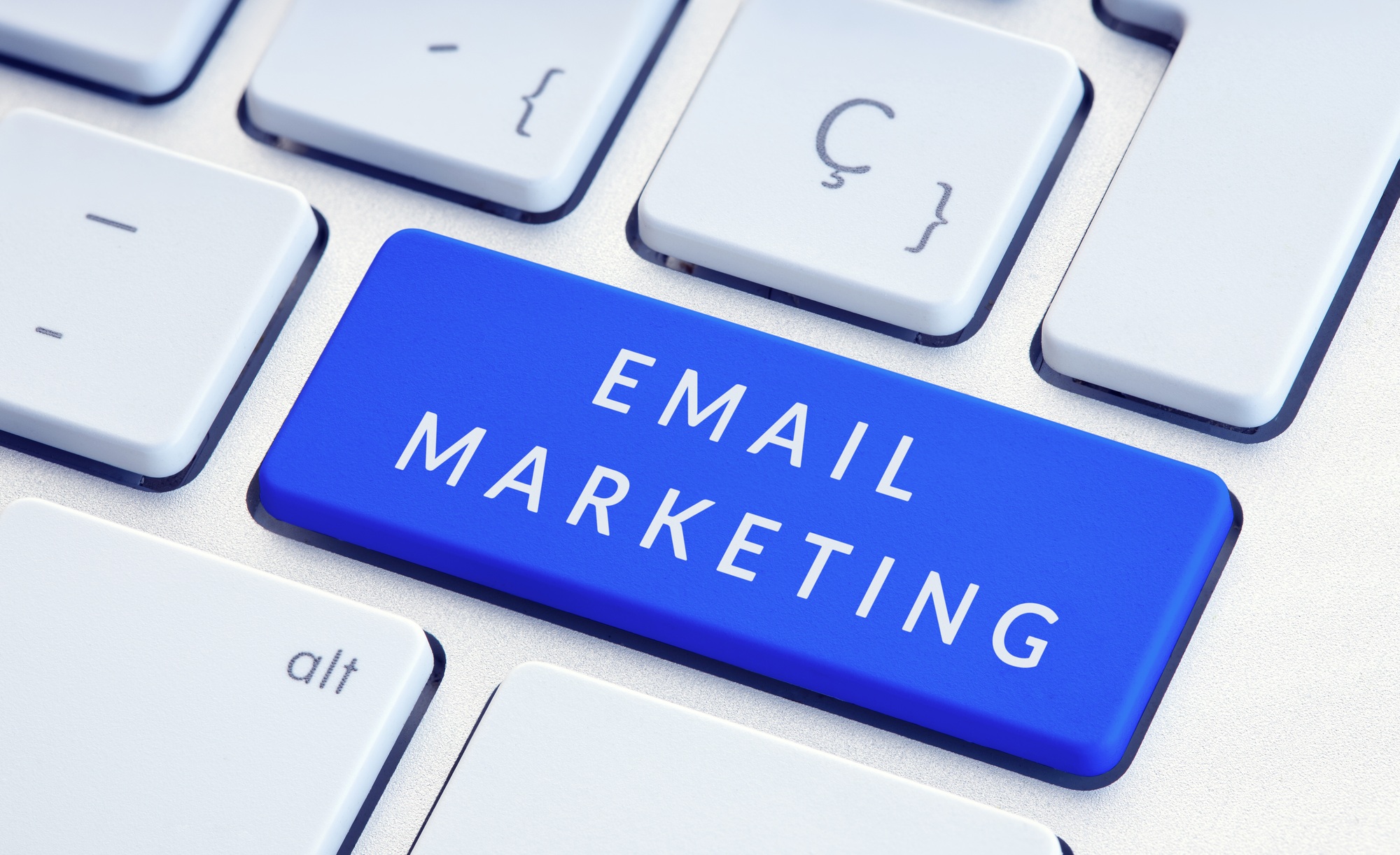Key Takeaways

- High Return on Investment: Email marketing offers an impressive average ROI of $42 for every $1 spent, making it a cost-effective strategy for businesses.
- Direct Engagement: This form of marketing enables direct communication with your audience, ensuring that your messages reach their inboxes without the interference of algorithms, unlike social media.
- Personalization: Tailoring emails to individual preferences significantly enhances engagement, as personalized messages can lead to higher open and click rates.
- Targeted Campaigns: Segmenting your audience allows for targeted campaigns, resulting in better conversion rates and maximized use of your marketing budget.
- Measurable Results: Email marketing provides clear metrics such as open rates, click-through rates, and conversion rates, allowing businesses to track performance and refine strategies effectively.
- Building Customer Loyalty: Consistent and engaging email communication fosters stronger relationships with customers, improving brand loyalty and retention.
In today’s digital landscape, email marketing stands out as one of the most effective tools for businesses. It’s not just about sending messages; it’s about building relationships and engaging with your audience on a personal level. With a staggering return on investment, email marketing can transform your outreach strategy and drive significant growth.
Imagine reaching your customers directly in their inboxes, delivering tailored content that resonates with their needs. This form of marketing allows you to nurture leads, boost conversions, and foster brand loyalty. As you explore the benefits of email marketing, you’ll discover why it remains a cornerstone of successful digital strategies. Let’s dive into how it can elevate your business and connect you with your audience like never before.
Overview of Email Marketing

Email marketing serves as a powerful tool for small businesses seeking to enhance their marketing strategies. This approach enables you to connect directly with your audience through personalized messages. Email marketing allows for targeted campaigns, ensuring that your content reaches the right people at the right time.
With a focus on building relationships, email marketing fosters engagement and encourages customer loyalty. You can segment your audience based on behavior or demographics, tailoring your messages to meet their specific needs. This personalization increases the likelihood of conversions and enhances the overall customer experience.
The return on investment for email marketing is notable, offering a higher yield compared to other marketing channels. Data shows that for every $1 spent on email marketing, you can expect an average return of $42. This compelling statistic underscores the effectiveness of email marketing as a key component of your overall marketing strategy.
Moreover, email marketing provides insights through analytics. You can track open rates, click-through rates, and conversions, enabling you to refine your approach continually. By measuring these metrics, you gain a better understanding of your audience’s preferences, allowing for improved content delivery and greater marketing impact.
Cost-Effectiveness of Email Marketing

Email marketing stands out due to its cost-effectiveness, making it an ideal choice for small businesses. With minimal upfront investment, you can reach a broad audience efficiently.
Lower Customer Acquisition Costs
Email marketing lowers customer acquisition costs significantly. It allows small businesses to connect with potential customers directly, ensuring your marketing budget stretches further. By targeting specific segments based on behavior and demographics, you refine your outreach, resulting in better conversion rates and reduced costs associated with attracting new customers.
High Return on Investment
Email marketing consistently delivers a high return on investment. Statistically, businesses earn an average of $42 for every $1 spent on email campaigns. This impressive ROI stems from the ability to nurture leads and convert them into loyal customers. By leveraging personalized content and analytics, you can optimize your email strategies, ensuring you achieve maximum profitability from your marketing efforts.
Direct Communication with Audience

Email marketing establishes direct communication lines with your audience, ensuring messages land in their inboxes without interference. Unlike social media, where algorithms can limit visibility, email delivers messages straight to intended recipients. This reliability helps small businesses maintain consistent engagement with their customers.
Personalized Messaging
Email marketing enables personalized messaging tailored to individual recipient preferences. You can customize emails to match the needs and interests of your audience, enhancing their relevance. Personalization increases the likelihood of engagement and fosters stronger relationships with your customers, which is essential for small business success.
Targeted Campaigns
Targeted campaigns allow you to focus your marketing efforts on specific audience segments. By understanding customer demographics and behaviors, your campaigns can reach the right people at the right time. This approach results in higher conversion rates, effectively utilizing your marketing budget and driving growth for your small business.
Increased Customer Engagement

Email marketing significantly enhances customer engagement, enabling businesses to connect directly and personally with their audiences.
Higher Open and Click Rates
Higher open and click rates result from personalized email campaigns. Personalized subject lines and content grab readers’ attention, making them more likely to open emails. Targeting specific consumer groups based on their preferences increases engagement rates. According to recent studies, personalized emails generate 6 times higher transaction rates than generic messages. Measuring these metrics helps you refine your strategies to maximize engagement and improve customer relationships.
Building Customer Loyalty
Building customer loyalty becomes easier through effective email marketing strategies. Interactive campaigns, like polls and surveys, involve customers in conversations, making them feel valued. Sending tailored content based on customer behavior fosters strong connections and increases brand loyalty. Consistent communication offers valuable information, addressing customer concerns promptly and enhancing satisfaction. Loyalty programs communicated through email lead to higher retention rates, ensuring customers feel appreciated and engaged with your small business.
Measurable Results and Analytics

Email marketing offers clear measurability, enabling you to gauge the effectiveness of your campaigns through various metrics.
Tracking Performance Metrics
Tracking performance metrics is essential for optimizing your email marketing strategies. Key metrics include:
- Deliverability Rate: This metric shows the percentage of sent emails that reached recipients’ inboxes. To calculate it, divide the number of delivered emails by the total number of emails sent, then multiply by 100. A high deliverability rate indicates a well-maintained email list.
- Open Rate: This measures the percentage of recipients who opened your email. Higher open rates suggest engaging subject lines and relevant content, critical for small businesses aiming to connect with their audience.
- Click-Through Rate (CTR): CTR measures the percentage of opens that resulted in a click on a link within the email. This metric helps assess content relevance and call-to-action effectiveness.
- Conversion Rate: This indicates the percentage of recipients who completed a desired action, such as making a purchase or signing up for a newsletter. Tracking conversion rates allows you to evaluate the success of your campaigns in generating sales or leads.
- Bounce Rate: This metric reveals the percentage of emails that couldn’t be delivered. Keeping this rate low indicates a healthy email list and targeted outreach strategies for small businesses.
- Unsubscribe Rate: This measures the percentage of recipients who opt out of your email list. Monitoring this rate helps identify potential issues with content or frequency that might deter engagement.
A/B Testing for Optimization
A/B testing involves creating two variations of an email to determine which version performs better. This method allows you to test various elements, like subject lines, content layout, and call-to-action buttons. Implementing A/B testing can enhance your email marketing effectiveness through:
- Subject Line Testing: Test different subject lines to see which garners higher open rates, allowing you to refine your approach for future campaigns.
- Content Variation: Experiment with different content styles or lengths to identify the format that resonates best with your audience.
- Call-to-Action (CTA) Optimization: Assess how various CTAs affect click-through rates, enabling you to select the most compelling prompts to drive user action.
- Sending Time Analysis: Evaluate how sending emails at different times affects engagement, helping you schedule your emails for maximum impact.
By tracking performance metrics and leveraging A/B testing, you can make data-driven decisions that optimize your email marketing strategy, ensuring your small business effectively engages and converts its audience.
Conclusion

Email marketing stands out as a powerful strategy for connecting with your audience. Its ability to deliver personalized content directly to inboxes ensures your messages aren’t lost in the noise of social media algorithms. By leveraging targeted campaigns and analytics, you can refine your approach to maximize engagement and conversions.
The impressive return on investment speaks volumes about its effectiveness. With every dollar spent yielding substantial returns, it’s clear that email marketing is not just an option but a necessity for your business growth. Embrace this tool to build lasting relationships with your customers and drive your brand’s success.
Frequently Asked Questions

What is the importance of email marketing for businesses?
Email marketing is crucial for businesses as it fosters personal relationships with customers, enhances engagement, and significantly drives growth. It allows for targeted, tailored communication that meets specific audience needs, leading to higher conversion rates and increased brand loyalty.
How does email marketing generate a return on investment?
Email marketing boasts an impressive return on investment, averaging $42 for every $1 spent. This high ROI is due to its ability to nurture leads and convert them into customers through personalized content and targeted campaigns that effectively engage audiences.
Why is email marketing effective for small businesses?
Email marketing is particularly beneficial for small businesses because it enables direct, personalized communication with customers while being cost-effective. With minimal upfront investment, small businesses can efficiently reach a broad audience and lower customer acquisition costs.
How can businesses improve their email marketing strategies?
Businesses can improve email marketing strategies by utilizing analytics to track performance metrics such as open rates, click-through rates, and conversions. A/B testing different elements like subject lines and content helps optimize engagement and refine targeting for better results.
What metrics are important in email marketing?
Key metrics in email marketing include deliverability rate, open rate, click-through rate (CTR), conversion rate, bounce rate, and unsubscribe rate. Each metric provides valuable insights into campaign effectiveness, helping businesses refine their outreach strategies.
How can personalization enhance email marketing effectiveness?
Personalization significantly boosts email marketing effectiveness by tailoring content to individual preferences, resulting in higher open and transaction rates. Personalized emails generate six times higher transaction rates compared to generic messages, enhancing customer engagement and loyalty.
What role do targeted campaigns play in email marketing?
Targeted campaigns focus marketing efforts on specific audience segments, ensuring content reaches the right people at the right time. This approach increases the likelihood of conversions, enhances customer experience, and optimally utilizes marketing budgets.
How can interactive elements in emails increase engagement?
Incorporating interactive elements like polls and surveys in emails encourages customer participation, making them feel valued. These tactics enhance engagement and help businesses build stronger relationships, ultimately leading to increased brand loyalty and retention rates.
Image Via Envato



